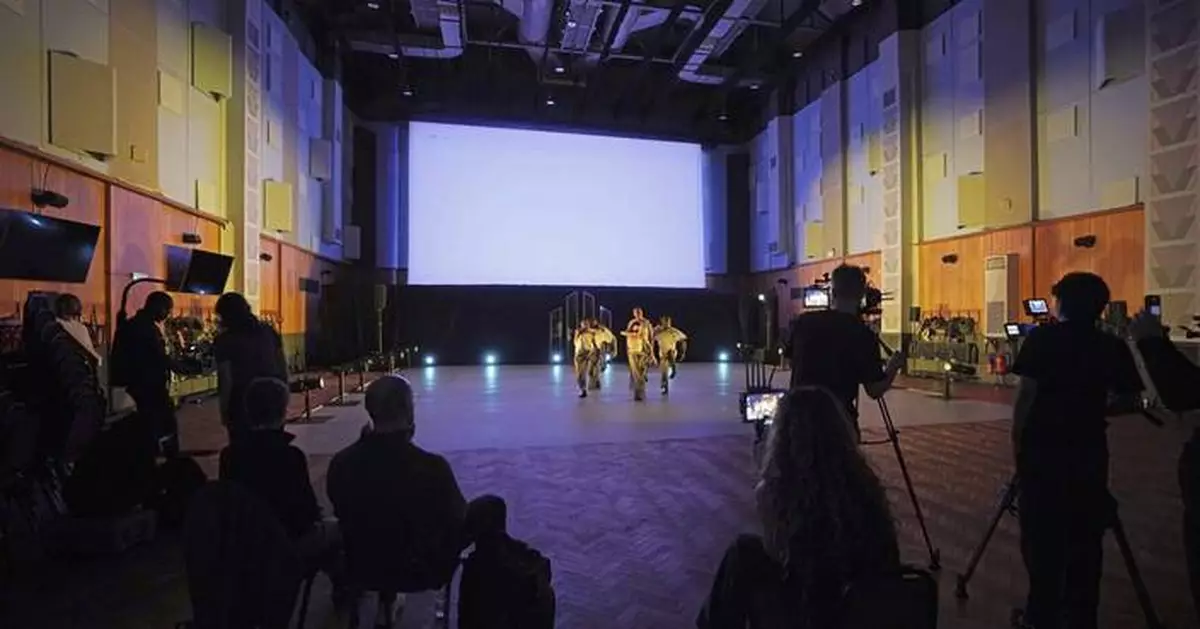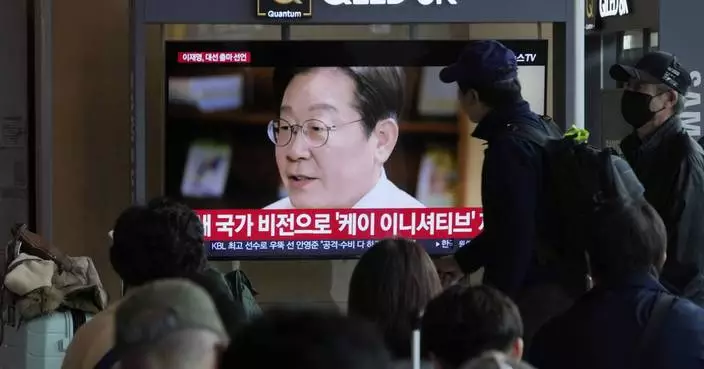LONDON (AP) — In Abbey Road’s Studio One, even a lick of paint could ruin everything.
Famous for hosting Adele, Harry Styles and U2, it’s where the scores of “Star Wars,” “Harry Potter” and “Wicked” were recorded, as well as the soundtracks of blockbuster games like “Call of Duty,” “Halo” and “Final Fantasy.” It’s also where Ryan Gosling delivered his memorable “I’m Just Ken” for “Barbie.”
Click to Gallery
Dancers rehearse at Abbey Road's Studio One in London on Thursday, March 27, 2025. (AP Photo/Kin Cheung)
A dancer rehearses at Abbey Road's Studio One in London on Thursday, March 27, 2025. (AP Photo/Kin Cheung)
Dancers rehearse at Abbey Road's Studio One in London on Thursday, March 27, 2025. (AP Photo/Kin Cheung)
Dancers rehearse at Abbey Road's Studio One in London on Thursday, March 27, 2025. (AP Photo/Kin Cheung)
A dancer rehearses at Abbey Road's Studio One in London on Thursday, March 27, 2025. (AP Photo/Kin Cheung)
Dancers rehearse at Abbey Road's Studio One in London on Thursday, March 27, 2025. (AP Photo/Kin Cheung)
Dancers rehearse at Abbey Road's Studio One in London on Thursday, March 27, 2025. (AP Photo/Kin Cheung)
Dancers rehearse at Abbey Road's Studio One in London on Thursday, March 27, 2025. (AP Photo/Kin Cheung)
Dancers rehearse at Abbey Road's Studio One in London on Thursday, March 27, 2025. (AP Photo/Kin Cheung)
An entrance of Abbey Road's Studio is seen in London on Thursday, March 27, 2025. (AP Photo/Kin Cheung)
A general view of Abbey Road's Studio is seen in London on Thursday, March 27, 2025. (AP Photo/Kin Cheung)
Dancers rehearse at Abbey Road's Studio One in London on Thursday, March 27, 2025. (AP Photo/Kin Cheung)
Dancers rehearse at Abbey Road's Studio One in London on Thursday, March 27, 2025. (AP Photo/Kin Cheung)
Nearly a century after its opening, Studio One underwent a six-month, multimillion-pound refurbishment, with the main priority being the preservation of one very important thing: the sound.
“What we don’t want to do is change the acoustics, so every minute detail in the room has been conserved and preserved, so the sound doesn't shift,” said Sally Davies, managing director of Abbey Road Studios.
The reverb of the 4,844-square-foot (450-square-meter) room has been maintained at 2.3 seconds, the same as it was in the 1970s. There’s been no redecorating or style makeover, leaving the original Art Deco wall panels untouched.
“We have simply washed down the walls to preserve that sound,” said Davies, adding that the floor was re-sanded and oiled, but not varnished. Most of the upgrades, she explained, are technological upgrades in the control room. “This room is just about preserving that magic.”
Opened in 1931, this hallowed hall — once a nine-bedroom house on a grand suburban street in London’s St. John’s Wood neighborhood — became the world’s first recording studio. It’s where stereo was invented and it’s visited every day by music fans from around the world, who are happy just to stand on the street outside.
Davies says that more than a million people a year make a pilgrimage to the crossing outside, many to recreate the cover of The Beatles' “Abbey Road” album — and that number could increase after Sam Mendes’ upcoming biopics starring Paul Mescal, Barry Keoghan, Harris Dickinson and Joseph Quinn as the Fab Four.
And while John Lennon, Paul McCartney, George Harrison and Ringo Starr are famously known for using Studio Two, they also made history in the larger Studio One, which they used for the world’s first global live performance, a rendition of “All You Need Is Love” beamed to television sets around the world in 1967.
Before The Beatles, Studio One had already cemented its place in music history, when it was opened by British composer Sir Edward Elgar, who recorded his “Land of Hope and Glory” with the London Symphony Orchestra. It’s also hosted other music greats like Maria Callas, Igor Stravinsky, Daniel Barenboim, Fats Waller and Glenn Miller.
Due to its huge size, more than double Studio Two, it can fit a 100-piece orchestra and 100-member choir at the same time — which is perfect for recording film soundtracks, and explains why six to seven out of every 10 Hollywood films are scored at Abbey Road, according to the studio.
Standing on the balcony, overlooking the 40-foot-high (12-meter-high) room, Davies points out the original screen that was used to show “Raiders of the Lost Ark” (1981) while musicians played along to record the soundtrack.
Since then, everything from “The Lord of the Rings” trilogy to Marvel’s “Black Panther” and “Guardians of the Galaxy” to “Barbie” were scored in Studio One. For the last, all the musicians came in with something pink, whether a pink instrument or piece of clothing.
Oscar-nominated composer Daniel Pemberton has been recording in Studio One since 2009 and calls his “creative home” a “spectacular space.”
“Outside, it just looks like a normal house. And then you come in and you find this space in it that’s like almost the size of a football pitch. In fact, I have played football in there once,” he laughs.
Pemberton is known for scoring “Spider-Man: Across the Spider Verse,” “Ferrari,” “The Trial of the Chicago 7” and creating the “Slow Horses” theme song and “Strange Game,” with Mick Jagger.
“What’s so exciting about a room like Studio One is what happens on the day is what happens for the rest of time,” he says. “It’s like history is being made, whether it’s good history or bad history or whatever, you’re making a moment then.”
Pemberton notes the stories, whether personal or musical, that have unfolded within the walls of Studio One.
“The ghosts are insane in there,” he said.
Davies agrees that the history adds to the enchantment.
“You walk into this room and you can feel it. … There is a magic in the sound. It sounds phenomenal. There is a spirituality in who has been here, who has performed here,” she says. “So when we see artists come through, you know that immediate reaction of, ‘Oh my gosh. I’m in Studio One.’”
To celebrate the reopening this week, Abbey Road Studios showcased an unusual art form for the space: dance, which incorporated Pemberton’s scores, remixed by resident artist Jordan Rakei and choreographed by Joseph Toonga.
“It kind of like threw me back a bit like, wow, it really is big,” said Toonga of the first time he saw the studio. He then incorporated that feeling into a dance which spanned hip-hop, krumping and ballet.
Up next, the first client to record in Studio One since the refurbishment is a hush-hush Hollywood franchise.
But there are lots of secrets at Abbey Road. One of them is Pemberton’s plan to record the unique rattling sound of the new railings for a movie soundtrack.
There was concern that the hollow, Art Deco-style bars would upset the acoustics of the room, and a backup plan was made to fill them with sand if they messed with the reverb.
Luckily, the empty bars were allowed to stay because Pemberton is delighted by the noise they make when you run past them with keys — it’s another dramatic sound that can only be created in Studio One and will make its way into theaters around the world, via a film score.
This story has been corrected to show that Studio One can fit a 100-piece orchestra and 100-member choir at the same time, not 110 each, and that the managing director is named Sally Davies, not Sally Davis.
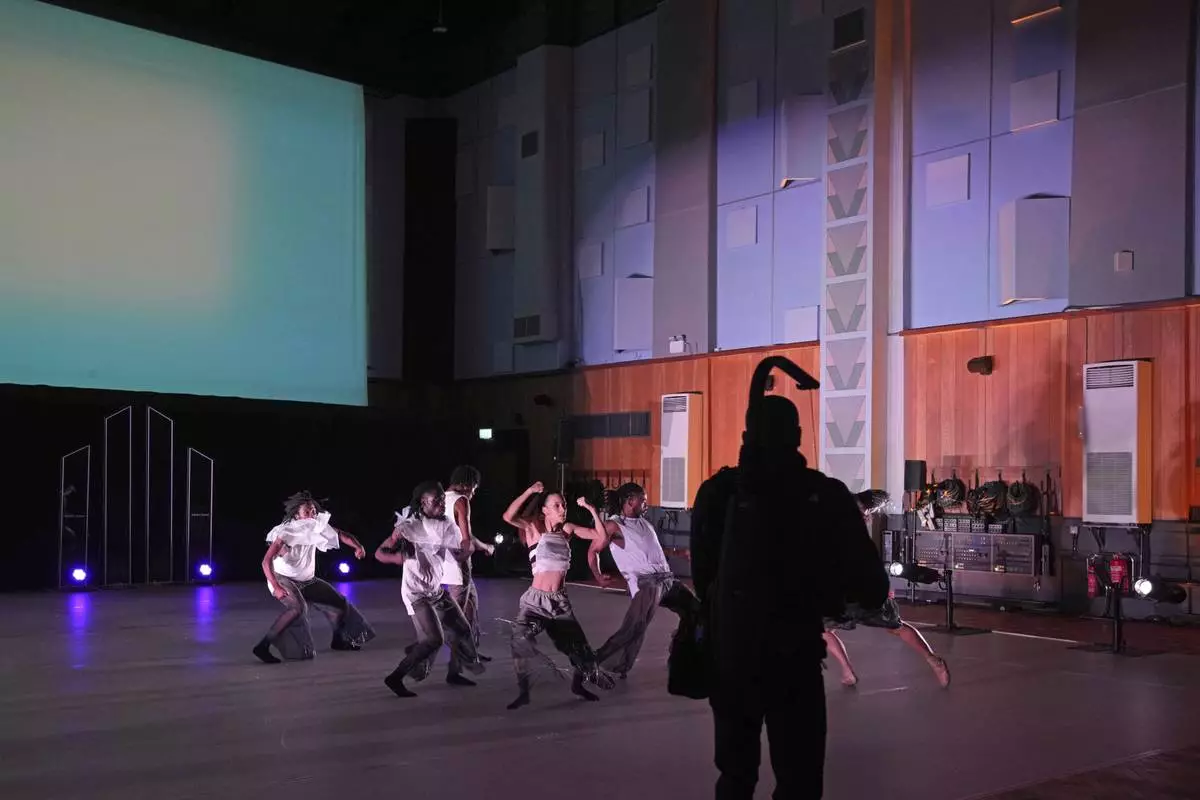
Dancers rehearse at Abbey Road's Studio One in London on Thursday, March 27, 2025. (AP Photo/Kin Cheung)
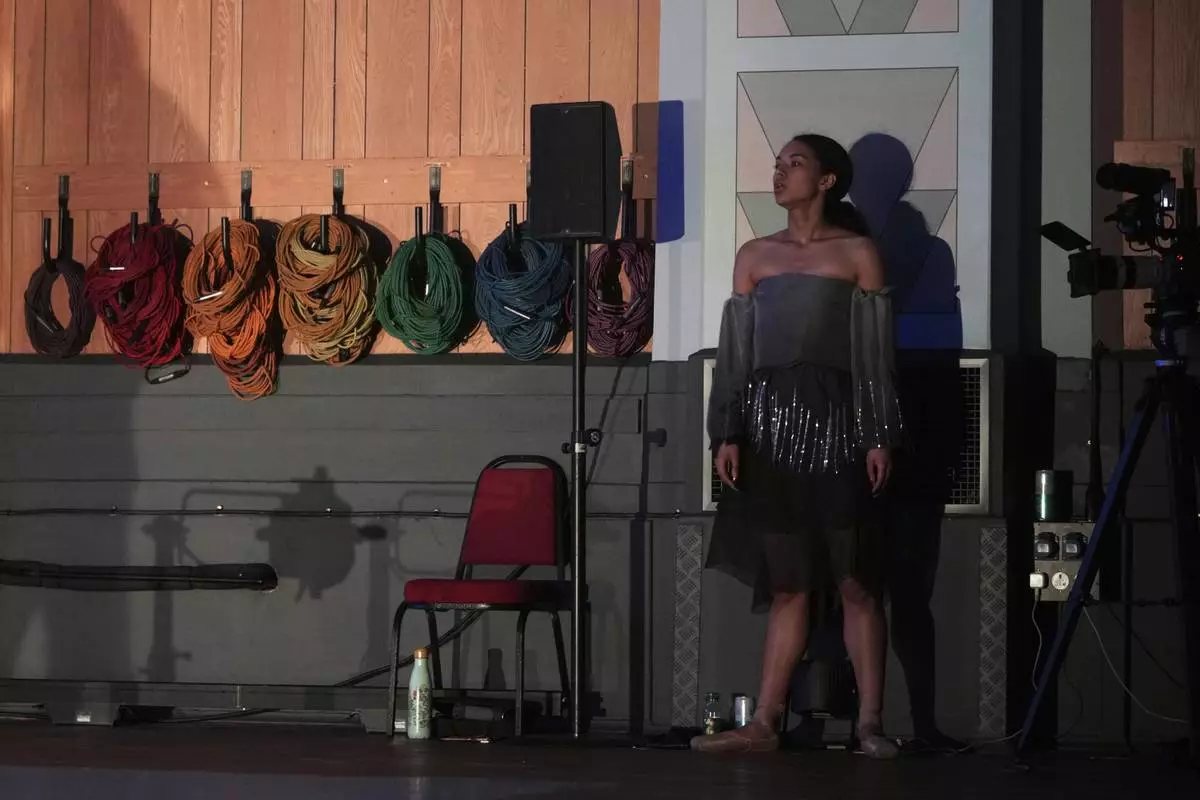
A dancer rehearses at Abbey Road's Studio One in London on Thursday, March 27, 2025. (AP Photo/Kin Cheung)
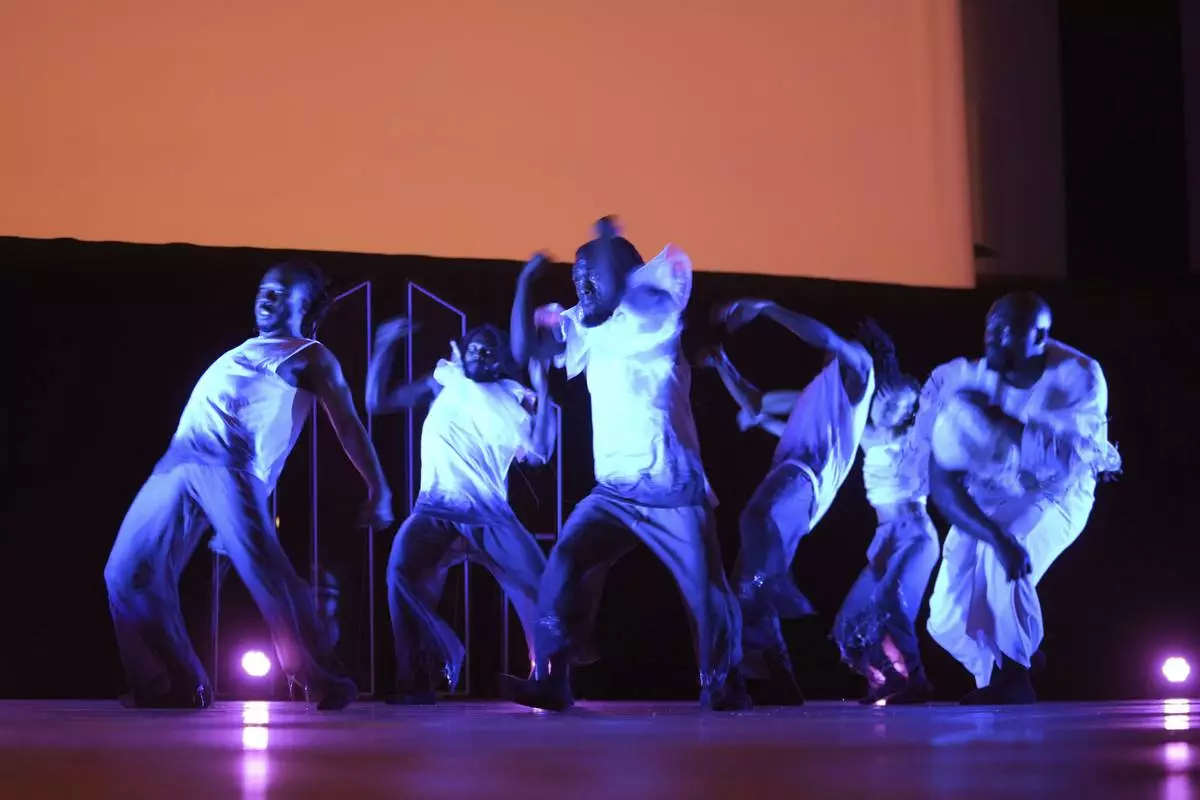
Dancers rehearse at Abbey Road's Studio One in London on Thursday, March 27, 2025. (AP Photo/Kin Cheung)
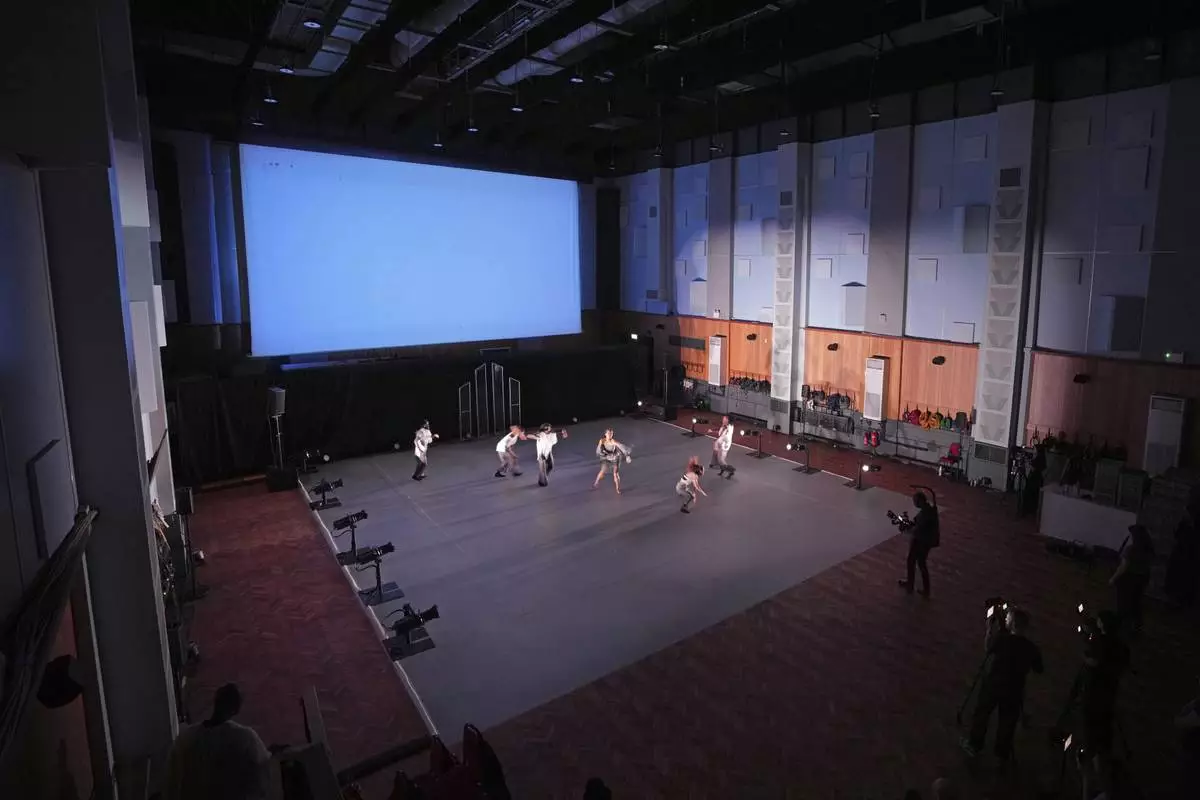
Dancers rehearse at Abbey Road's Studio One in London on Thursday, March 27, 2025. (AP Photo/Kin Cheung)
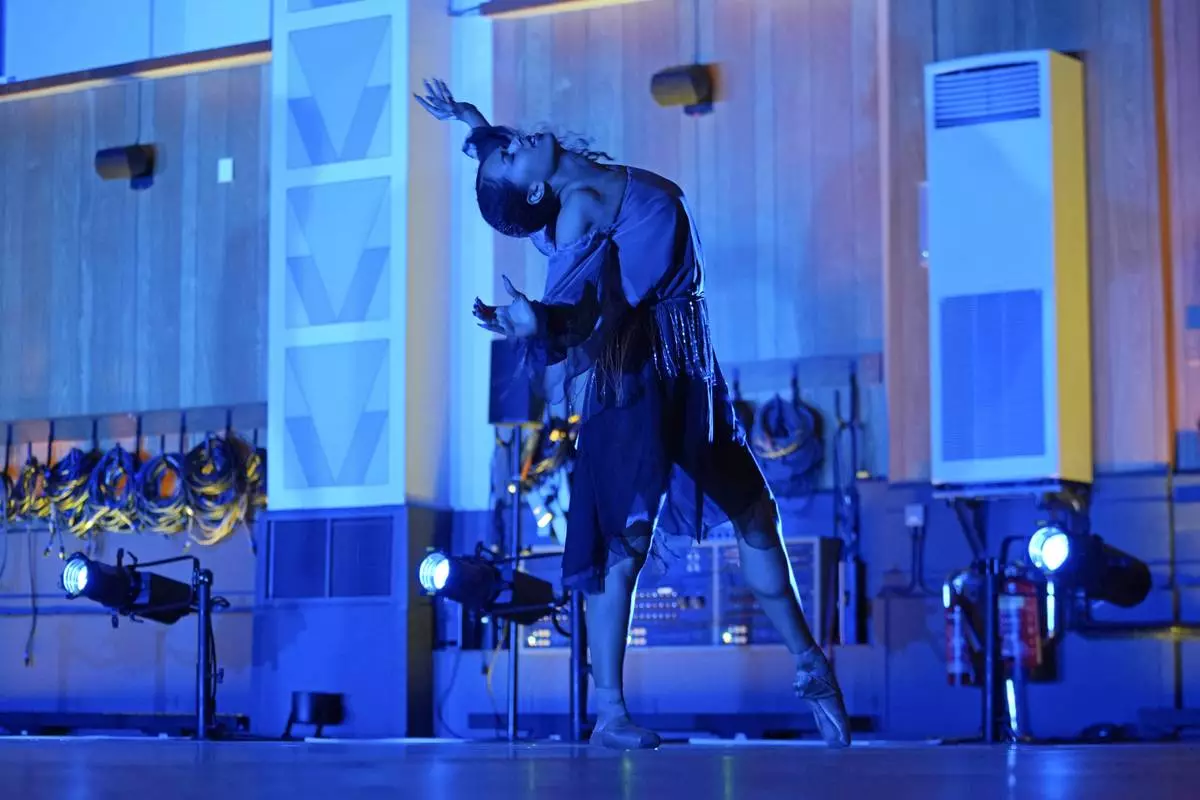
A dancer rehearses at Abbey Road's Studio One in London on Thursday, March 27, 2025. (AP Photo/Kin Cheung)
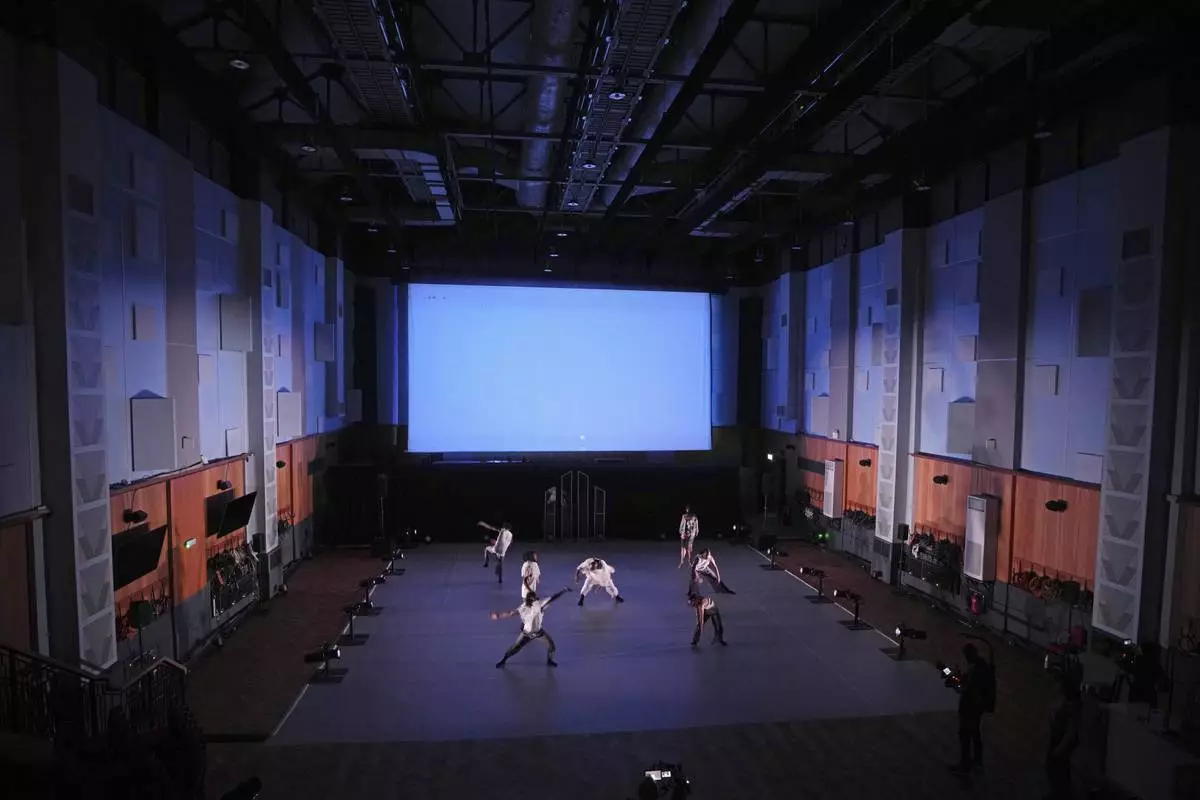
Dancers rehearse at Abbey Road's Studio One in London on Thursday, March 27, 2025. (AP Photo/Kin Cheung)
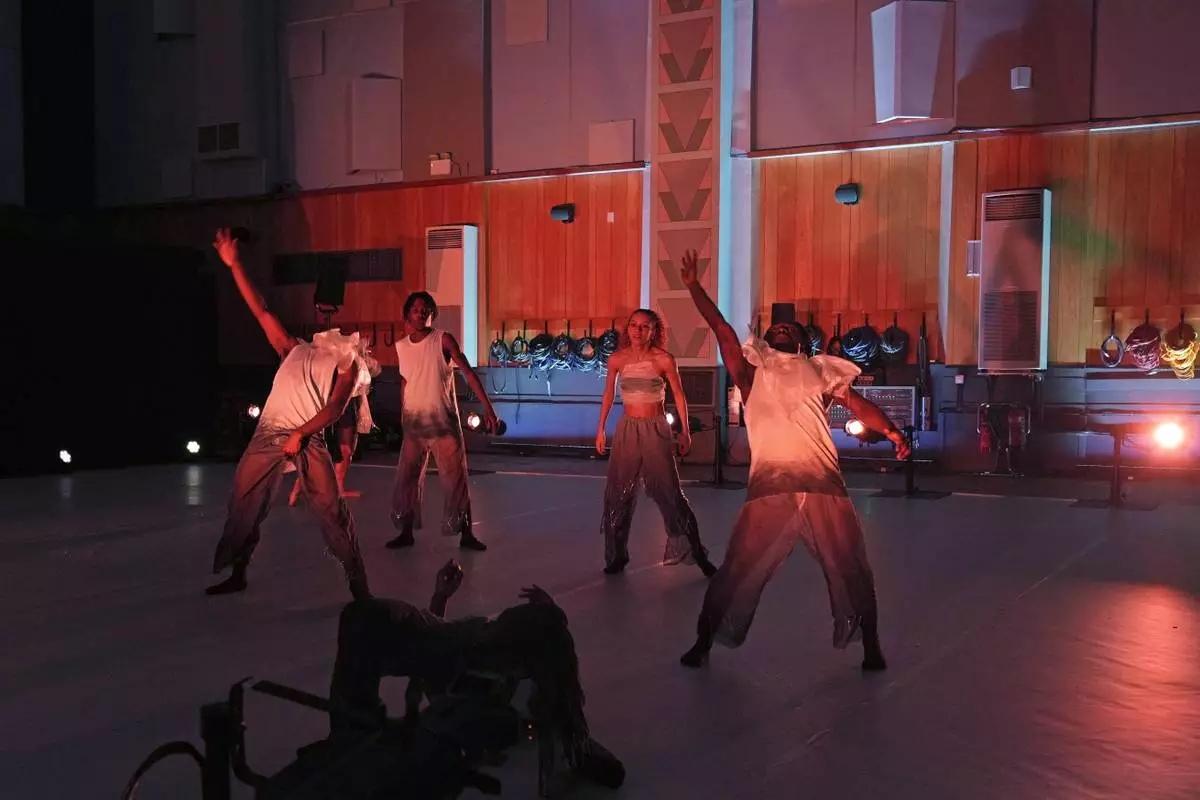
Dancers rehearse at Abbey Road's Studio One in London on Thursday, March 27, 2025. (AP Photo/Kin Cheung)
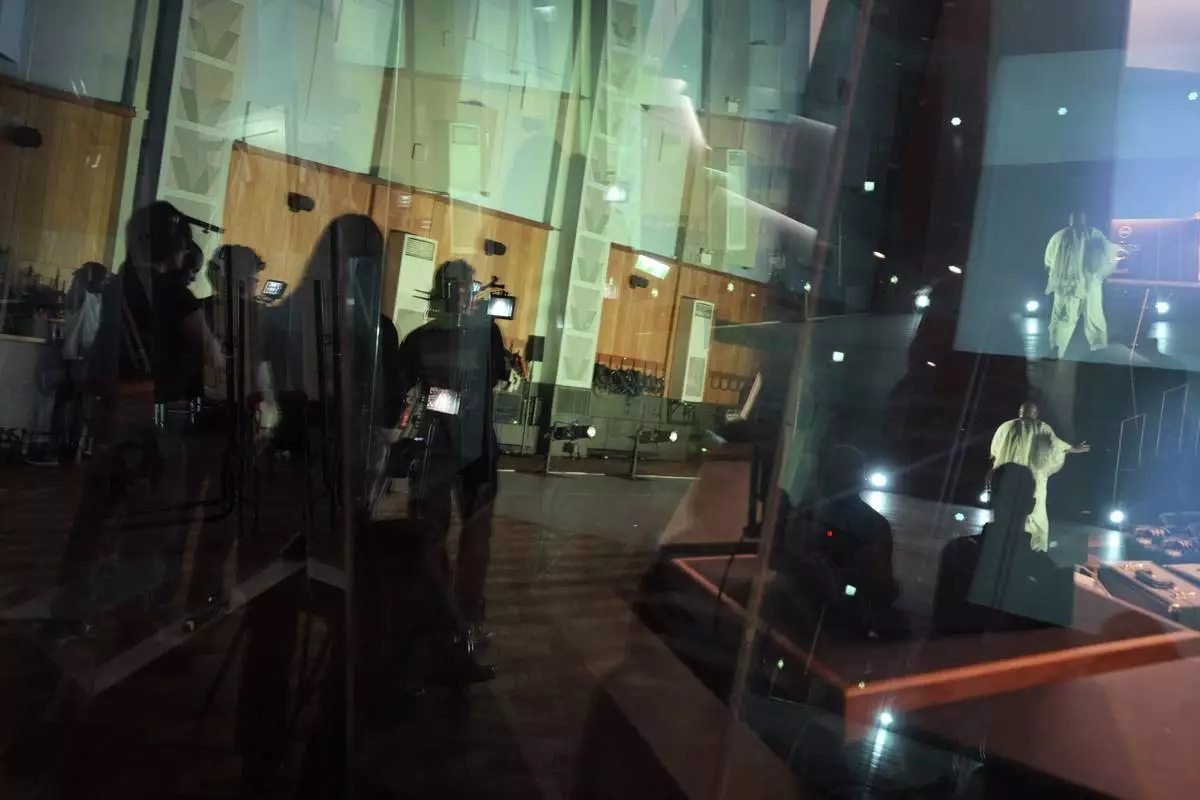
Dancers rehearse at Abbey Road's Studio One in London on Thursday, March 27, 2025. (AP Photo/Kin Cheung)
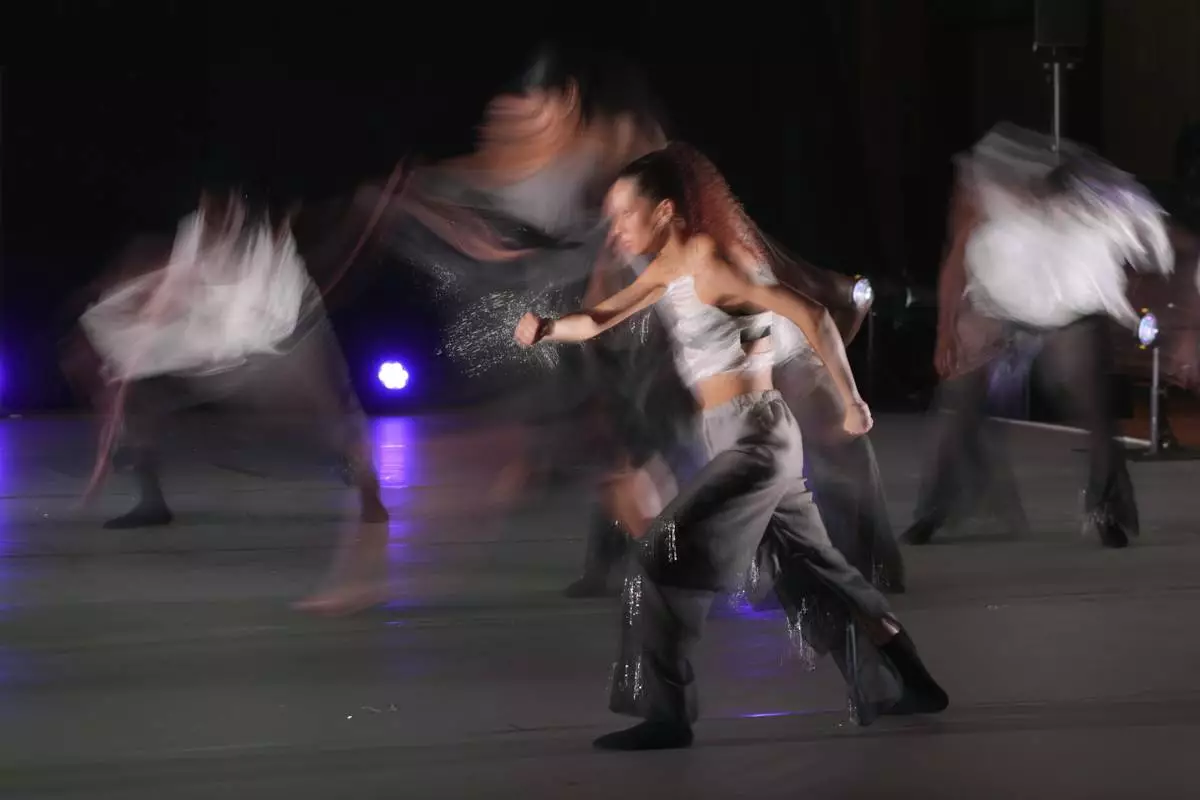
Dancers rehearse at Abbey Road's Studio One in London on Thursday, March 27, 2025. (AP Photo/Kin Cheung)
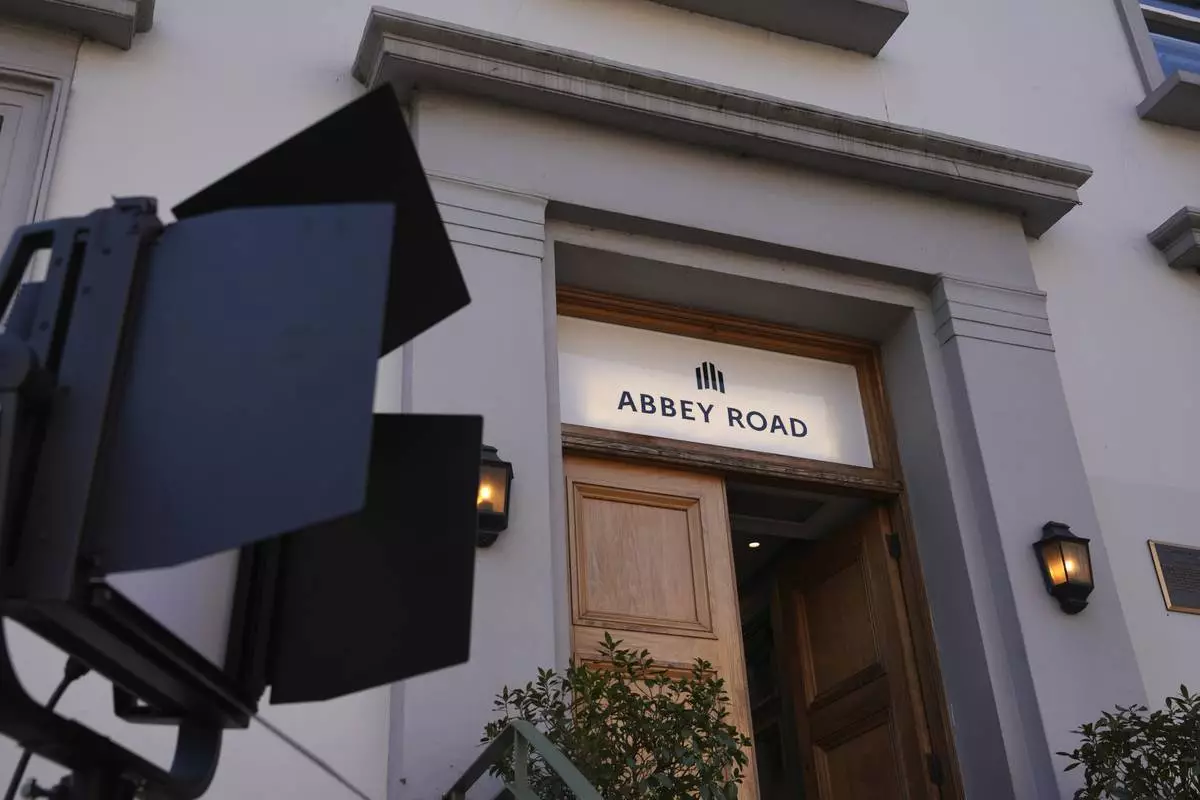
An entrance of Abbey Road's Studio is seen in London on Thursday, March 27, 2025. (AP Photo/Kin Cheung)
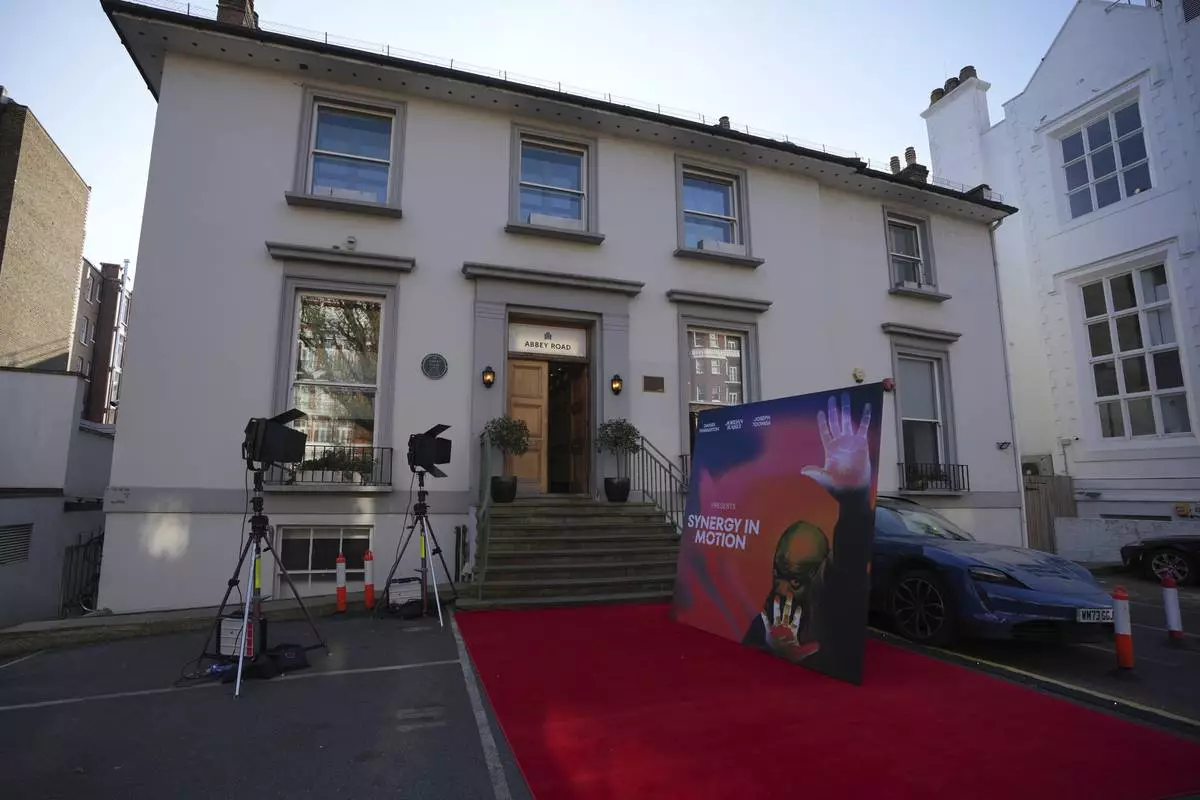
A general view of Abbey Road's Studio is seen in London on Thursday, March 27, 2025. (AP Photo/Kin Cheung)
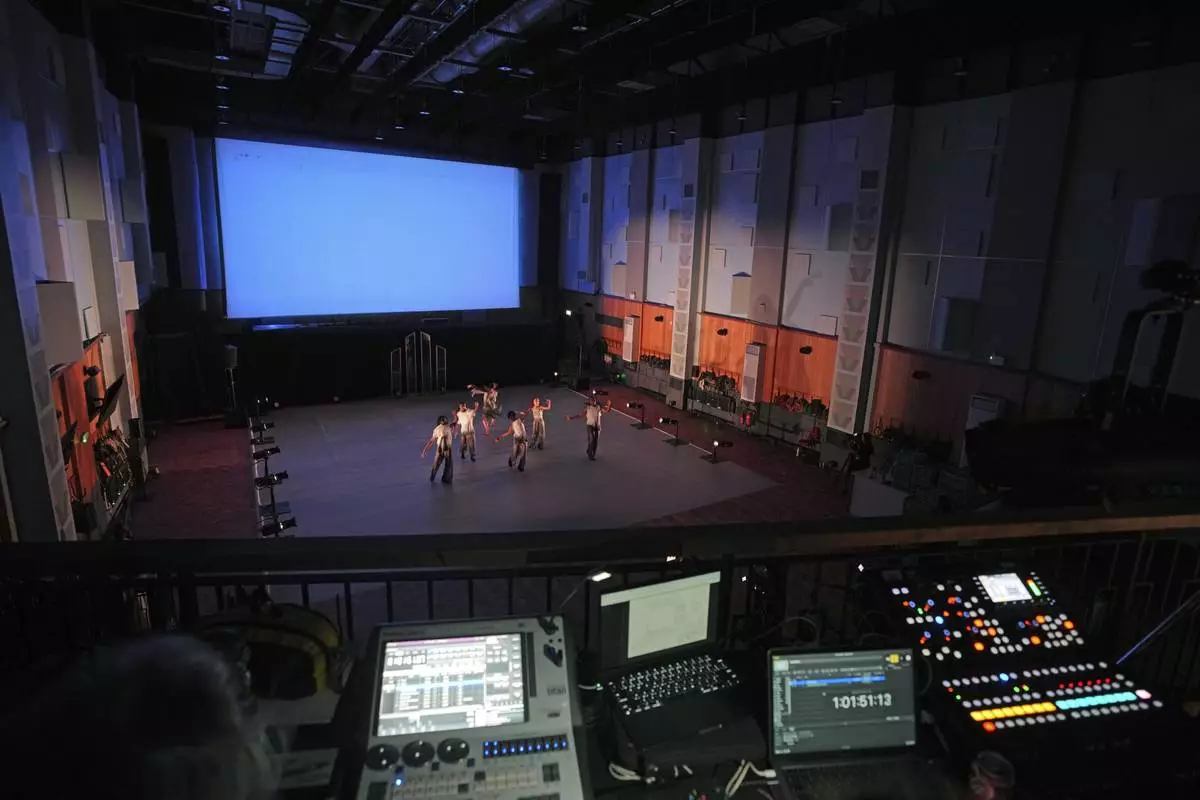
Dancers rehearse at Abbey Road's Studio One in London on Thursday, March 27, 2025. (AP Photo/Kin Cheung)
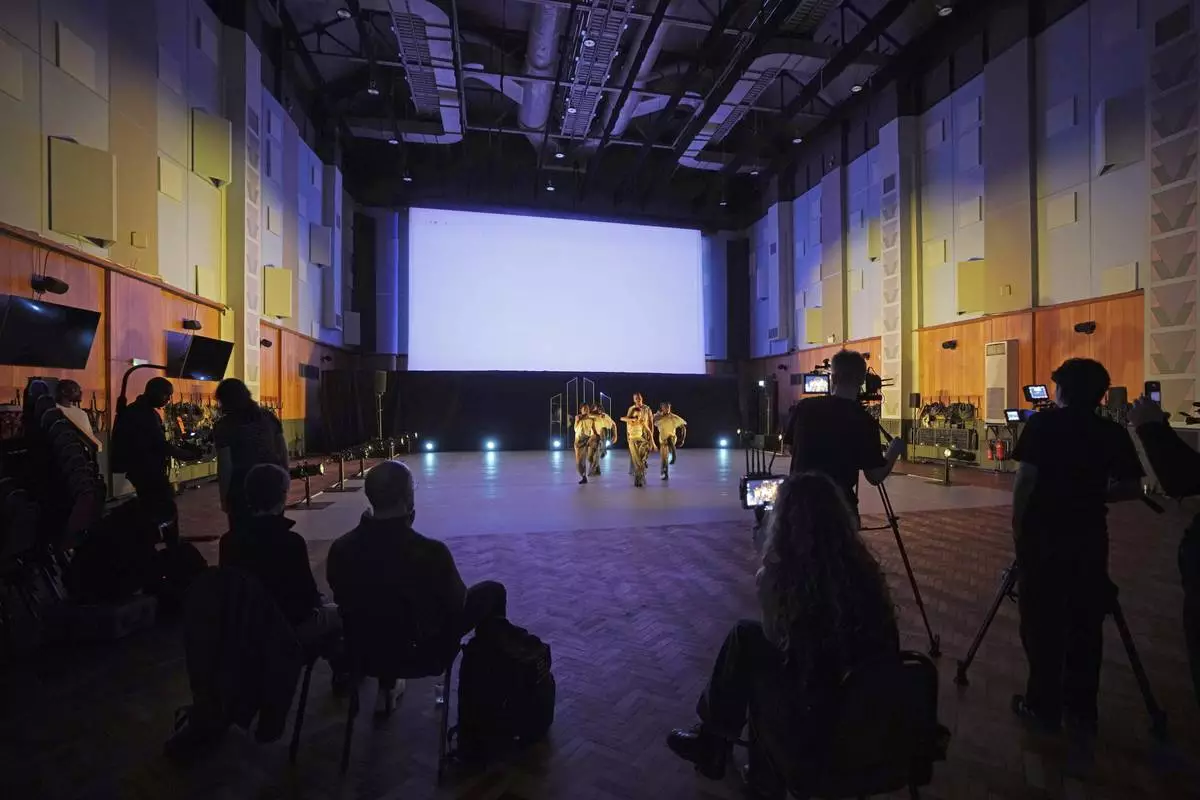
Dancers rehearse at Abbey Road's Studio One in London on Thursday, March 27, 2025. (AP Photo/Kin Cheung)
LONDON (AP) — Planning an international trip? Travelers should prepare for the possibility of extra scrutiny of their phones when crossing borders, especially when entering the United States.
The Canadian government warned travelers in a recent travel advisory that U.S. border agents are entitled to search your electronic devices and “don’t need to provide a reason when requesting a password to open your device.”
Some recent cases have made travelers nervous about their privacy, such as when a Brown University professor with a U.S. visa was deported to Lebanon after border agents found a photo of Hezbollah’s leader on her phone.
“While 100% privacy may be impossible in these situations, there are a few things you can easily do that make it much harder for someone to see your private data even with physical access to your device,” said Patricia Egger, head of security at encrypted service Proton Mail.
Here are tips on protecting your device privacy while travelling:
Experts say the best strategy is to reduce the amount of information you’re carrying while traveling.
If possible, leave your phone at home. If you need one on your trip, borrow a tactic used by corporate executives looking to avoid hackers: get a temporary or “burner” device. It can contain just the information you need for your trip. Download anything else from the cloud when you need it.
If you have to bring your phone or laptop, upload sensitive information to a cloud storage service that uses end-to-end encryption, then delete the originals from your device.
Also, encrypt your phone or laptop’s storage drive and protect it with a strong password. Be aware this is different from merely having a device passcode lock, which is more easily cracked, or the end-to-end encryption on your favorite communication platforms.
Turn off fingerprint or facial recognition features and use the PIN or passcode instead.
There are two kinds of searches, according to the U.S. Customs and Border Protection website.
In a basic search, an officer scrolls through your phone’s photos, emails, apps and files. No suspicion of wrongdoing is needed to conduct this type of search.
In an advanced search, the contents of your device could be copied for analysis. But a senior manager needs to sign off and there needs to be “reasonable suspicion” of a legal violation, except if there’s any concern for national security, according to the Electronic Frontier Foundation (EFF).
“It’s hard to say,” says Sophia Cope, senior staff attorney at the EFF, which offers an extensive online guide to border privacy. Warrants are not needed to inspect devices belonging to anyone entering the country.
U.S. Customs and Border Protection agents carried out a total of more than 47,000 electronic device searches last year, up tenfold from a decade ago.
Basic searches “can be for no reason at all, totally random, or based on a mere hunch about someone – maybe based on how they look or an answer they gave to a preliminary question,” said Cope.
Travel history can also be relevant, for example, if a traveler originates from someplace where terrorism, drug trafficking, or child sex tourism is common, she said. Border agents can also search devices “at the behest” of other agencies like the FBI or if they’re associated with someone else of interest, such as a journalist’s source, a business associate or a family member.
Best to power off your devices when you touch down.
Under current policy, U.S. border agents are only allowed to look at information stored on the device, and not anything that’s kept in the cloud. So if you have to leave your phone on, make sure it’s kept in airplane mode or otherwise disconnected from the internet by Wi-Fi or cellular data.
“Before crossing the border, put your device in airplane mode to ensure remote files don’t get downloaded accidentally,” the Canadian government warns.
But keep in mind there might be cached data that still remains on your phone, such as files in the trash that haven’t been emptied.
American citizens can’t be denied entry to the United States for refusing to consent to device searches. The same should apply to lawful permanent residents such as green card holders, the American Civil Liberties Union says.
But agents can make things difficult if they’re refused. Travelers could be questioned, detained temporarily or have their devices seized and not returned for days or even weeks, rights groups say.
Foreign travelers could be turned back if they say no.
If you’re forced to unlock your device, Egger advises that “where you can, log in yourself rather than divulging any PINs or passwords, and if forced to share passwords, change them as soon as you can.”
Experts say the reason you should not use your device’s fingerprint or facial recognition feature is that it’s easier to compel you to unlock your device with biometrics. A border agent could simply hold your phone up to your face or force you to press your finger onto your device. There are also fears that police could use fingerprints stored on government databases.
Powering off your devices is another way to protect against sophisticated attacks in case you don’t consent to a search.
Most modern phones and some laptops encrypt their data using a strong cryptographic keys only accessible when the user unlocks it with the passcode, said Will Greenberg, the EFF’s senior staff technologist.
If the device is locked but not turned off, the key remains loaded on the device’s memory. Powerful hacking tools made by companies like Cellebrite can recover the key and decipher the data.
But if the device is off, the key is unloaded and can’t be accessed until it’s turned on again and unlocked with the passcode.
“This is why a border agent can’t simply turn a device on to use a tool like Cellebrite,” Greenberg said.
To be on the safe side, delete your social media apps and reinstall them later. Even though content is mainly stored on a social media company’s servers, Cope says some posts or images might remain on your phone’s memory cache and therefore viewable even in airplane mode.
It’s not just phones and laptops. Digital cameras, smartwatches, tablets, external hard drives and other electronic devices can be searched.
Some tactics might backfire. If you’re tempted to completely wipe your phone or laptop hard drive before you travel, experts warn it could raise scrutiny.
“If detected by a border agent, the fact that you wiped your hard drive may prompt the agent to ask why you did so,” the EFF’s guide says. “Even traveling without devices or data that most travelers typically have could attract suspicion and questions.”
Also don’t try to hide information on your device, because border agents could find out, the group says. “Lying to border agents can be a serious crime, and the agents may take a very broad view of what constitutes lying,” it says.
Check local laws of your destination before you travel. For example, Britain’s counterterrorism law allows police to demand that people passing through the country’s border hand over devices along with passwords and PINs. If they refuse, they can be charged with terrorism.
Is there a tech topic that you think needs explaining? Write to us at onetechtip@ap.org with your suggestions for future editions of One Tech Tip.
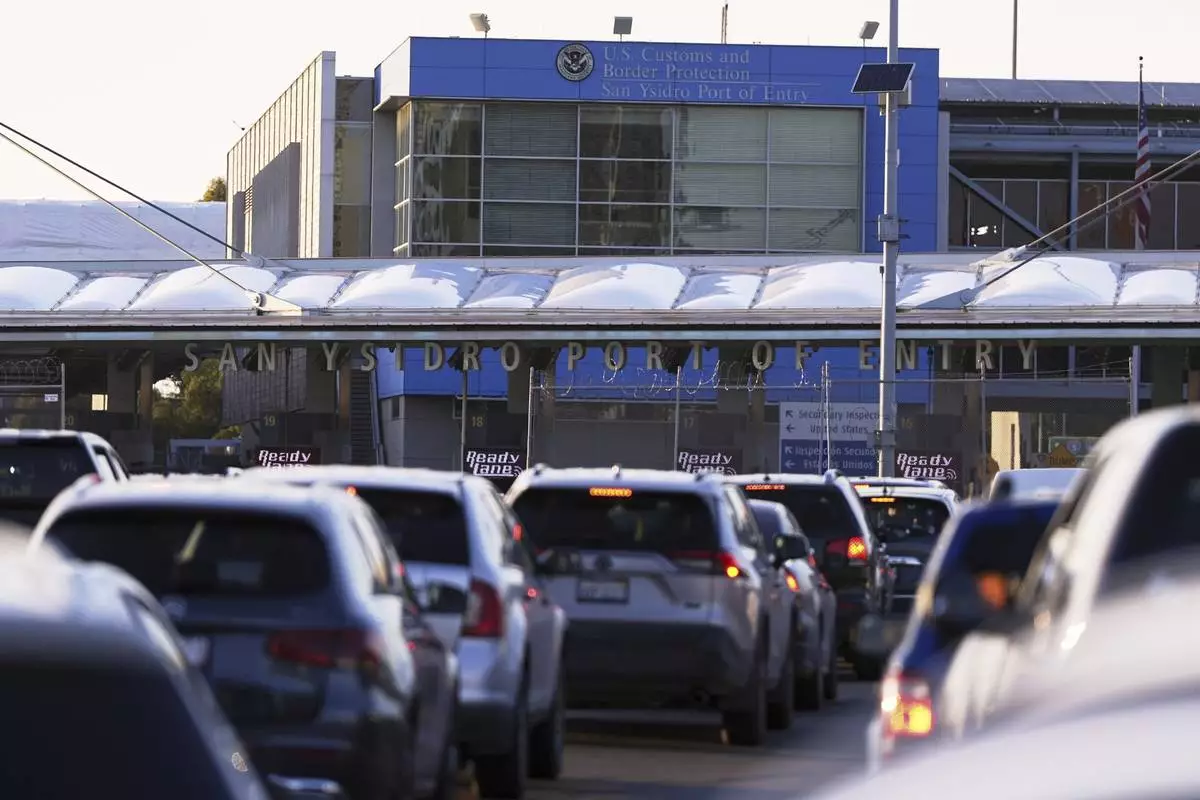
FILE - Vehicles wait in line to cross the border into the United States at the San Ysidro Port of Entry, Tuesday, March 18, 2025, in Tijuana, Mexico. (AP Photo/Gregory Bull, File)















